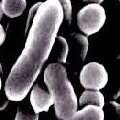Wyatt technology to eliminate bacteriophage infections in dairy production
Bacteriophages are intracellular parasites that multiply inside bacteria, infecting them and causing failures of the milk fermentation process.
Bateriophage infections
Several industrial strains are sensitive to powerful bacteriophages, which can infect lactococcus lactis, delay lactic acid production and potentially stop the milk fermentation process: “As a result, the product's desired properties are altered or entirely lost,” said Wyatt.
“The first step in the infection process is the adsorption of the phage to the bacterial cell. One strategy to minimise bacteriophage infections is to competitively block phage adsorption by adding a protein specifically binding to the phage Receptor Binding Proteins,” the company added.
The Biological Macromolecules joint research unit of the université de Provence and université de la Méditerranée in France, selected three Designed Ankyrin Repeat Proteins (DARPins) binding to the baseplate of the lactococcal phage to study.
The universities concluded that the DARPins could be used as a potential tool to fight against phage and viral infections.
Wyatt said “The results of the experiment clearly demonstrated that Wyatt’s instrumentation allows the study of protein-protein complexes by monitoring complex formation and then accurately characterizing the size and stoichiometry of the resulting assembly.”
Californian-based Wyatt Technology is a provider of instruments for macromolecular characterisation.
The company develops multi-angle light scattering detectors, working with customers in the biotechnology, chemical, petrochemical, pharmaceutical and academic areas.





